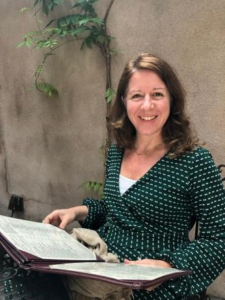Virtual Workshop (In English) on July 2: Maggie Gardner on Beyond the Presumption Against Extraterritoriality

On Tuesday, July 2, 2024, the Hamburg Max Planck Institute will host its 46th monthly virtual workshop Current Research in Private International Law at 2:00 pm – 3:30 pm (CEST). Maggie Gardner (Cornell Law School) will speak, in English, about the topic
Beyond the Presumption Against Extraterritoriality
For the last decade, the debate over prescriptive jurisdiction in the United States has been monopolized by the Supreme Court’s rejuvenated presumption against extraterritoriality. Under this framework, U.S. courts interpreting federal statutes must ask (1) whether the statute expresses clear congressional intent to reach extraterritorial conduct, and if not, (2) whether the statute is nonetheless being applied domestically because its “focus” occurred in the United States. But even the Court’s presumption-with-teeth cannot answer all questions of prescriptive jurisdiction in a world of concurrent jurisdiction and economic interdependency. Are there limits on the applicability of U.S. statutes that do rebut the presumption at step one? At step two, does some need for balancing of sovereign interests remain–and is that balancing subsumed within the step two inquiry, or is it a distinct doctrine of international comity? This survey of lower federal court decisions shows that U.S. courts are continuing to engage in contextual balancing despite the rule-like framework of the modern presumption against extraterritoriality, but also that the “focus” test may be encouraging judges to identify a more limited and relevant set of factors to consider. What emerges is a multi-factor analysis that is statute-specific but still responsive to the circumstances of individual cases, in which the presumption serves only as an initial sorting rule. This project distills and defends this updated approach as more feasible for judges to apply, more faithful to congressional intent, and sufficiently capable of addressing international comity concerns without the need for an additional, free-standing comity doctrine.
The presentation will be followed by an open discussion. All are welcome. More information and sign-up here.
If you want to be invited to these events in the future, please write to veranstaltungen@mpipriv.de.







